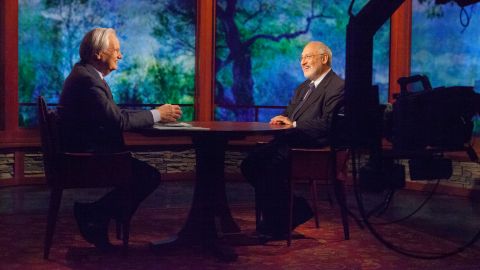

But inequity has social, moral and even economic costs. The increasing inequity of the US is but reflective of the increasing inequity in the rest of the world. In a decade in which per capital GDP in the US increased by ten percent while average wages decreased by 4 percent we have learnt that some rising tides only lift the biggest of boats. This is an important book and perhaps the best I’ve read on the current crisis - its causes, the reasons for those causes, possible solutions and the moral implications of our obsession and blind faith in free market economics: a theology of greed whose time has surely past. Stiglitz is one of the most frequently cited economists in the world. Professor Stiglitz is also an honorary professor at Tsinghua University School of Public Policy and Management. He also chairs the University of Manchester's Brooks World Poverty Institute and is a member of the Pontifical Academy of Social Sciences. Since 2001, he has been a member of the Columbia faculty, and has held the rank of University Professor since 2003. In 2000, Stiglitz founded the Initiative for Policy Dialogue (IPD), a think tank on international development based at Columbia University. He is known for his critical view of the management of globalization, free-market economists (whom he calls "free market fundamentalists") and some international institutions like the International Monetary Fund and the World Bank. He is also the former Senior Vice President and Chief Economist of the World Bank.

He is a recipient of the Nobel Memorial Prize in Economic Sciences (2001) and the John Bates Clark Medal (1979).

Joseph Eugene Stiglitz, ForMemRS, FBA, is an American economist and a professor at Columbia University.


 0 kommentar(er)
0 kommentar(er)
